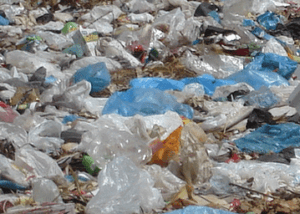British Biochemist tasks Ghana to rid the environment of plastic pollution
 Dr Rich Roberts, a British biochemist and molecular biologist say Ghana needs to figure out ways to get rid of plastics and end environmental pollution.
Dr Rich Roberts, a British biochemist and molecular biologist say Ghana needs to figure out ways to get rid of plastics and end environmental pollution.
Dr Roberts who was speaking at a round table discussion on funding biomedical research in Ghana said students could even be engaged to find things that can degrade plastics and explore possible ways to make plastics more degradable.
“Now we know that you can make plastic a little bit biodegradable, there are no enzymes to biodegrade them effectively yet, but there may be native organisms here in Ghana to biodegrade plastics, this is something that scientist could get involved in.” he said
He urged biomedical scientist to make a case and engage the government on the need to invest in biomedical science stating ‘If you don’t get your self-organized, you cannot convince anyone to invest in science.’
Dr Roberts said Ghana has an opportunity to explore ways to use Genetically Modified plants, and modern greening techniques to increase the livelihood of farmers.
He asked scientists to engage and educate students on GMOs to enable them to position themselves to have a stake in the world of science.
“One of the things I am impressed with in Lebanon is that they had an extreme rate of poverty among the farmers, we published a story on how introducing GMOs into Lebanon can help reduce poverty and it’s served as an example on what can be done there and elsewhere to create opportunities for people,” Dr Roberts said.
Dr. Kwasi Agbleke, President, Sena Institute of Technology (SIT) said biomedical research in Ghana is challenged with funding, as many institutions do not have the needed resources to carry out their research. Some faculties use their own money to fund their research into biomedical sciences.
He said presently, some facilities and graduate students in Ghana, use their own money to buy reagents for research to acquire degrees.
Dr Agbleke called for a collaboration between industry and science to reduce over-reliance on donor funding for biomedical research.
“We are always relying on donor funding from the USA, Europe and Asia but locally there are enough resources in the country to fund biomedical research, government, industry and academia needs to come together to do this,” he said.
Source: GNA
